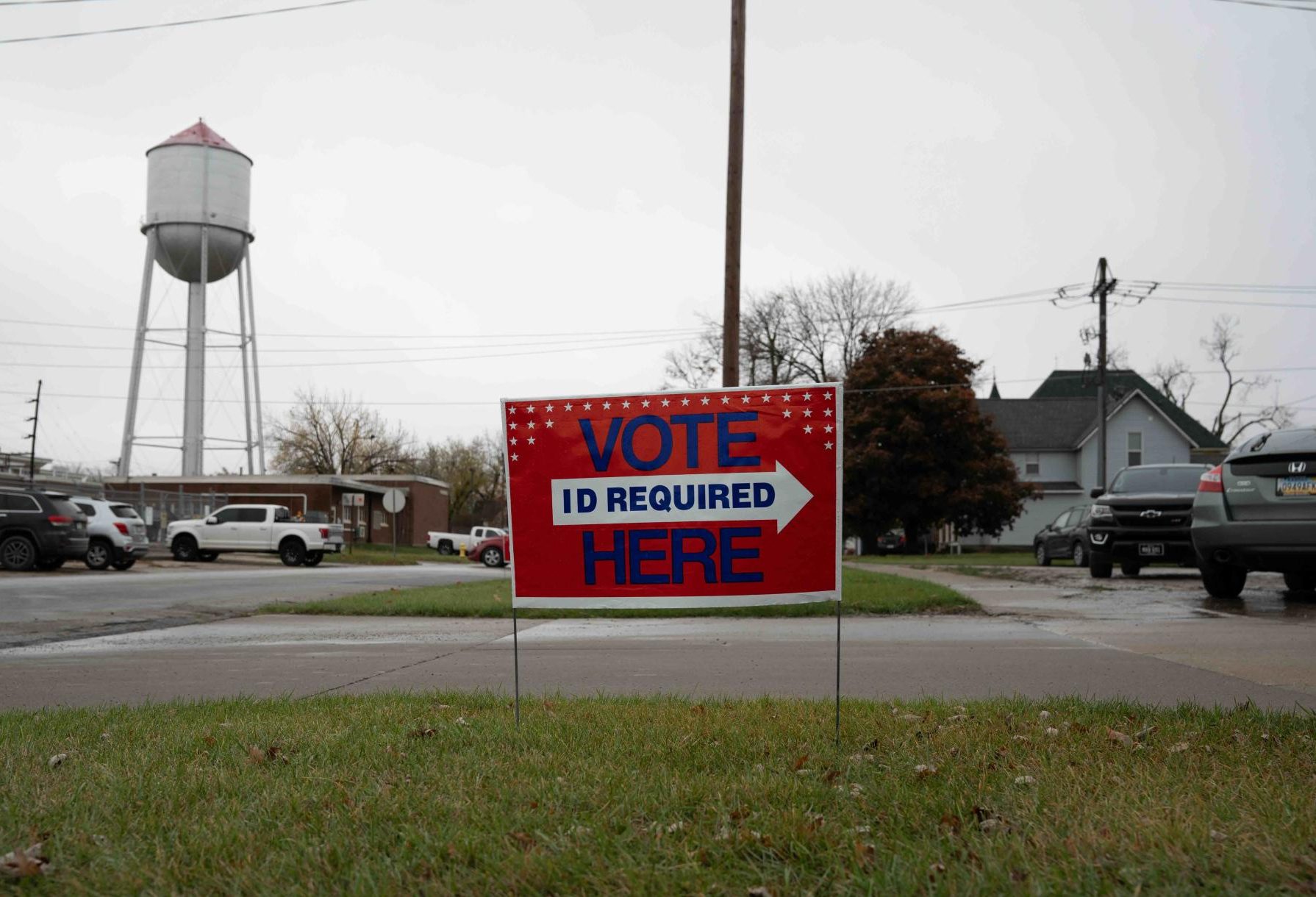When Professor of Spanish Mirzam Cristina Pérez and her husband arrived at the Grinnell Elks Lodge to vote on a tax levy for a new elementary school on Mar. 4, she expected a quick, uneventful stop at the polls. Instead, she said, a poll worker questioned her husband’s residency, drawing out the process and leaving them feeling singled out.
“We’re brown, and my husband was questioned inside whether he was a resident or not,” Pérez said. “We have our passports here, both of us.” Pérez, originally from San Pedro Sula, Honduras, by way of New Orleans, has taught at Grinnell College since 2009.
Although her husband ultimately cast his ballot, Pérez described the line of questioning as “voter intimidation” that caused an unnecessary delay. Following the incident, Pérez said she contacted Poweshiek County Auditor Missy Eilander, who oversees elections in the county.
Eilander said Iowa law requires every voter to present identification — such as a driver’s license, non-operator ID or U.S. passport — when checking in. “No voter is to be turned away,” she told The S&B. “If they don’t have their ID, they can vote provisionally. That ballot is sealed and verified later.”
Eilander said she spoke with the polling station’s chair immediately after hearing from Pérez and offered to visit in person to address any confusion. “I later drove up to Grinnell, and by the time I got there, the chair had spoken to all four of the iPad poll book workers about the process,” Eilander said.
According to Eilander, poll workers are trained to confirm voter details — date of birth, current address and any changes to registration — without deterring anyone from casting a ballot. “I don’t tell my workers to intimidate voters,” she said. “Everybody is provided the opportunity to vote, whether that’s a regular ballot at the polls or a provisional ballot.”
Pérez said she is relieved her husband’s ballot was eventually counted but wants smoother experiences in the future. “We’re both U.S. citizens,” she said. “We had passports in hand. It shouldn’t have been this complicated.”
This local incident comes amid a broader statewide debate over how Iowa verifies voter eligibility, punctuated by a recent constitutional amendment that passed with 52.2 percent of the vote, changing the state’s language from “every citizen” to “only a citizen.”
In tandem with this amendment, Iowa Secretary of State Paul Pate announced on Mar. 20 that 277 noncitizens remained on the voter rolls — 13 percent of the more than 2,000 people his office flagged before the 2024 election. He has referred 35 who cast ballots to law enforcement and is suing U.S. Citizenship and Immigration Services for access to federal data to help verify voter status. Pate is also pursuing legislation that would grant his office wider authority to collect information from state and federal agencies, moves he said are necessary to protect election integrity.
Meanwhile, opponents including the American Civil Liberties Union (ACLU) of Iowa and the League of United Latin American Citizens (LULAC) argue that these measures — along with the last-minute release of the flagged-voter list — risk deterring legally eligible voters, especially naturalized citizens, from casting a ballot.
Although a federal judge allowed Pate’s directive to challenge flagged voters’ registrations to proceed, critics said the timing and scope of the action constituted a “voter purge program.” According to an ACLU lawsuit on behalf of LULAC and five naturalized citizens, many people on Pate’s list had already become U.S. citizens or were otherwise incorrectly flagged. Civil liberty advocates contend that ongoing anti-immigrant rhetoric, including the recent constitutional shift, may further compound fears and reduce voter turnout among minority communities.








Randall Hotchkin • Mar 30, 2025 at 10:25 am
I often defend Grinnell College but it is inflammatory accusations and articles like this that make me question why I bother. This article intentionally makes the question of residency about race and citizenship when the poll worker was simply trying to confirm residency within the school district where the property taxes would be imposed. Most voters would present an iowa driver’s license that clearly identifies an address that can be verified as within the school district and therefore eligible to vote in this type of election. Could it be that any other form of identification might require an additional question or two? This poll worker should be commended for their diligence instead of being accused of voter intimidation and racism.